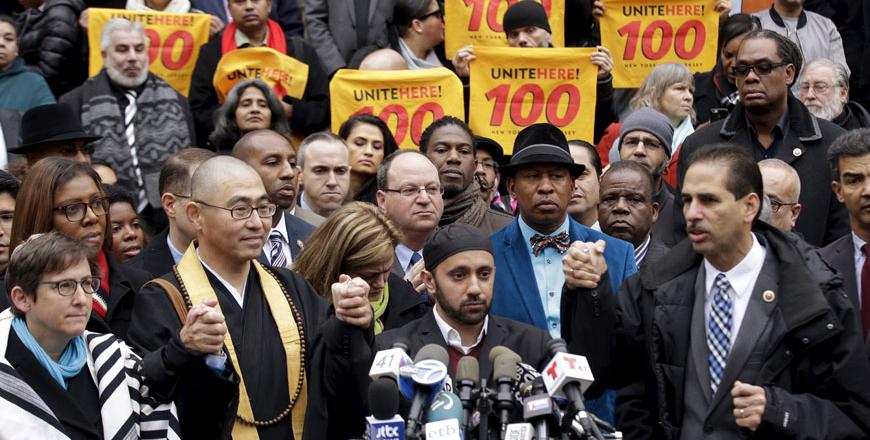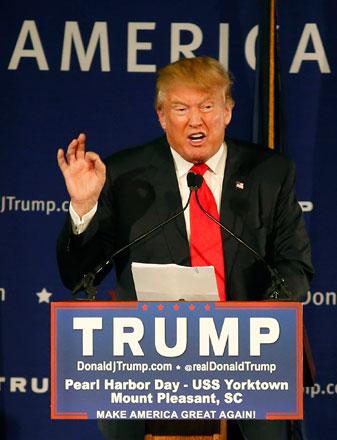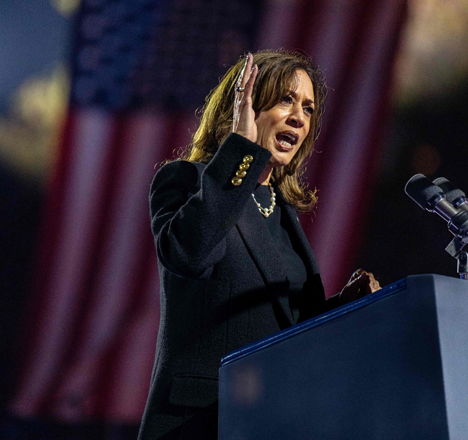You are here
From Jakarta to Lagos, many Muslims voice dismay at Trump win
By Reuters - Nov 09,2016 - Last updated at Nov 09,2016
JAKARTA/ISLAMABAD/CAIRO — Many Muslims around the world expressed dismay on Wednesday at Donald Trump's election as US president, saying they feared it might raise tensions between the West and Islam and contribute to radicalisation.
While Egypt's president made an early congratulatory call to Trump, ordinary Muslims were worried that his victory would be a propaganda gift to extremist groups. Others were apprehensive that the president-elect would implement campaign pledges to clamp down on Muslims entering the United States.
"Trump has espoused highly inflammatory rhetoric against Muslims. Voters there will expect him to fulfil his promises. That makes me worry about the impact on Muslims in the US and in the rest of the world," said Yenny Wahid, a prominent mainstream Muslim figure in Indonesia.
The world's 1.6 billion Muslims follow a multitude of sects and schools of thought, constitute a majority of the population in countries as varied as Indonesia, Pakistan, Saudi Arabia, Senegal and Albania, and hold a vast array of political views.
Yet, Trump's previous comments about Muslims — saying that those from abroad should be barred entry or intensely scrutinised beforehand — and the presence of vocal anti-Islam activists among his supporters, have alarmed many.
During a bitter election campaign, Trump also attacked his opponents for what he characterised as their denial about the threat posed by militant Islam, which he said was "coming to our shores", adding that he would quickly form a commission on it.
"I'm worried about [my relatives in America] because they are Muslims, Egyptian Muslims... and he is not going to treat Muslims well," said Ali Nabil, a 20-year-old student in Cairo.
Egyptian President Abdel Fattah Al Sisi was the first world leader to congratulate Trump on the phone, Sisi's office said, a welcome to the next president that was echoed by some other Arabs who disliked Hillary Clinton's Middle East policies.
But other Muslims saw Trump as a hostile figure.
"Whatever happens to America affects everybody and with all these promises of doom by Trump to the blacks, to the Muslims, the minority, so it's not something we're happy about," said Ganiu Olukanga, a Nigerian Muslim resident of Lagos.
Muslims who live as members of a religious minority in Western countries and have previously expressed fear at what they see as increasingly negative portrayals of their faith, also voiced worry at Trump's election.
"It is hugely worrying that a man who has called for discrimination against Muslims and other minorities has become the leader of a superpower nation," said Harun Khan, the secretary general of the Muslim Council of Great Britain, in a statement. He also congratulated Trump on his victory.
Radicalisation
Some Muslims said they feared Trump's election as president might encourage a view that the United States was hostile to Muslims and that this would hinder efforts in Islam to counter radicalisation.
"Trump's victory will be an enormous gift to a failing jihadist movement, that will have now have a renewed rallying cry," said Ammar Rashid, an academic and member of Pakistan's Awami Workers Party, on Twitter.
"If jihadi ideology has a source of sustenance, it is the image of the US as the evil anti-Muslim crusader. They will milk Trump's win dry," he added.
In jihadist social media forums, militants said Trump's election had merely revealed the true position of the United States towards Muslims. "The masks have slipped," one wrote.
But some other Muslims were more hopeful, including Umer Daudzai, a former Afghan minister of interior, citing the record of Ronald Reagan who was US president from 1981-89. "Ronald Reagan ended the Cold War. I hope Donald Trump will end all wars and become a hero of peace in the world," he told Reuters.
‘Negative, cynical’
Despite expressions of concern by some officials, the Organisation of Islamic Cooperation, the body that represents Muslim states, issued no statement early on Wednesday.
In Indonesia, the most populous Muslim nation, an official from the faith's top clerical body there said Trump's election could create new tension between the United States and the Islamic world.
Trump had made negative and cynical comments about Muslims in the past, Din Syamsuddin, a senior official at the Indonesian Ulema Council, told reporters in Jakarta. "He had forgotten that many Americans are immigrants."
Saudi Arabia, a US ally that is both birthplace of Islam and home to its holiest places, issued a statement congratulating Trump on his election win without making further comment.
However, Awad Al Qirni, one of its most popular clerics with a Twitter following of 2 million, said in a social media post after the election — but without referring to Trump directly — that "America declines into collapse" and that "its internal crisis will grow severely".
In Pakistan, Sherry Rehman, a senator and former ambassador to Washington, said Trump's proposal last year to bar Muslims from entering the United States had disturbed many.
"Pakistan obviously cannot rule out engaging with whomever America elects, but his anti-Muslim rhetoric may cast a shadow on relations in times of uncertainty," he told Reuters.
And in Bangladesh, a government official who asked not to be named said: "I can't think what awaits us. Donald Trump was talking about fighting against Muslims. Are we going to see more wars?"
In Dhaka, some citizens hoped the pressure of office would temper Trump's views.
"It is just unbelievable and I am a bit tense. I hope there will be a difference between Donald Trump and President Donald Trump. President Trump will be more mature than individual Trump," said Asif Iqbal, a private sector employee.
Related Articles
WASHINGTON — A growing global backlash against Republican presidential front-runner Donald Trump's proposal to ban Muslims from entering the
WASHINGTON — A firestorm erupted Tuesday over Donald Trump's call for a ban on Muslims entering the United States as religious leaders, the
PHILADELPHIA — In line for Kamala Harris's final rally of this US election campaign in Philadelphia on Monday, enthusiasm for the Democratic



















